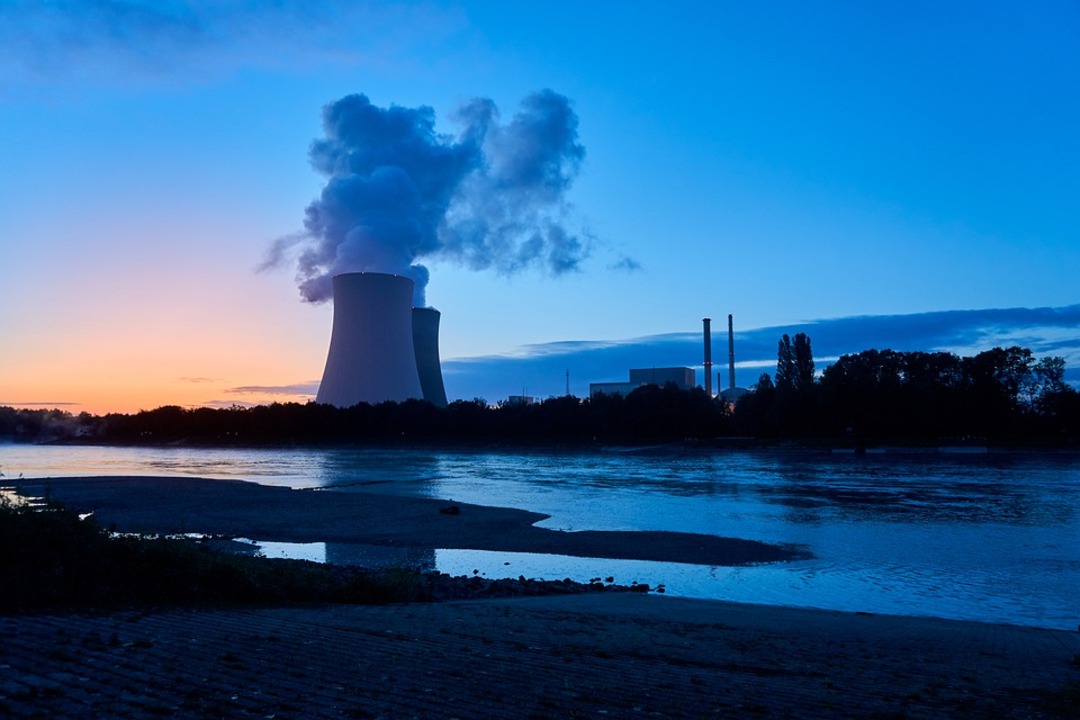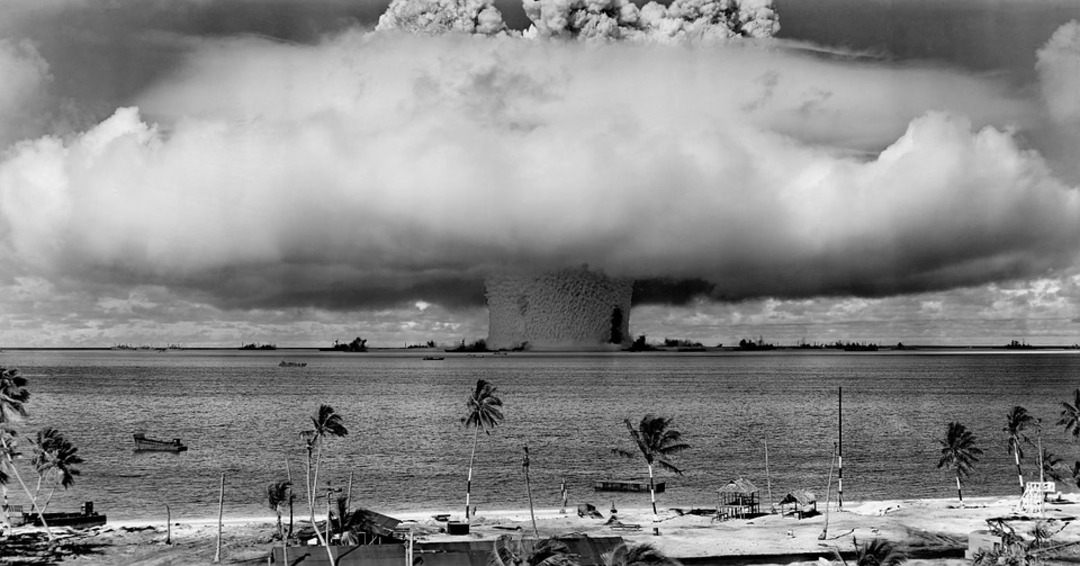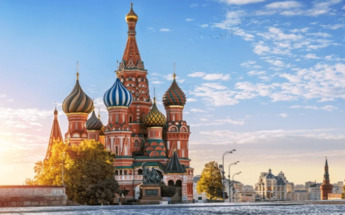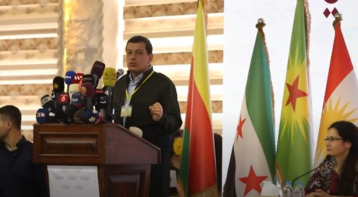-
Study shows over 5 billion would die of starvation in nuclear war

A new study has found that over 5 billion would die from starvation in the event of a full-scale nuclear war between the United States and Russia.
That’s the worst-case scenario in a Nature Food study published on Monday (August 15) that examined the indirect death toll caused as soot from burning cities and forests entered the atmosphere, The Hill reported.
According to a statement accompanying the study, the Rutgers University team arrived at that death toll by estimating how much global crop yields would suffer as the drifting clouds blocked out the sunlight that feeds plants that feed people.
First, researchers estimated the quantities of ash that would be thrown up by nuclear wars of varying size, as major cities in India, Pakistan, the United States or Russia burned.
Then they loaded that into a U.S. government-sponsored climate forecasting tool to track how that ash would move around the globe — and where and how much it would impact food production.

In the event of a U.S.-Russia nuclear war, the model found that the planet’s wind patterns would bring circling clouds of smoke and particulates to the skies above major food exporters like the U.S., China, Germany and the United Kingdom.
Crashing crop yields in those countries would trigger a cascade of escalating consequences that would draw the rest of the world into the crisis. With harvests collapsing, so would food exports — spreading famine across Africa and the Middle East that depend on imported food for survival.
UN chief Antonio Guterres expresses ‘clear commitment’ to North Korea denuclearization
Under that scenario, three-quarters of people on Earth would be starving within two years after the missiles stopped falling — and that would only be the beginning.
By three or four years after the nuclear exchange, global crop, animal and fishing yields would have dropped by 90 percent — spreading famine, disruption and collapse further, and triggering other feedback loops.
Much of the details of the extent to which crops would fail under such an exchange remains unclear, co-author Lili Xia of Rutgers said.
UN chief Antonio Guterres says any attack on nuclear plant is ‘suicidal'
Xia added: “For instance, the ozone layer would be destroyed by the heating of the stratosphere, producing more ultraviolet radiation at the surface, and we need to understand that impact on food supplies."
Such a war would need to reach the scale of a full-scale exchange between superpowers to spread famine far beyond the blast zone.
Even in the most limited nuclear war the team examined — a localized nuclear exchange between India and Pakistan — global food production dived by 7 percent from soot and ash from the explosions entering the atmosphere.
That number is far smaller than the crop failures the model found for the U.S.-Russia case study. But it’s also bigger than any disturbance to world food supplies since the U.N. Food and Agriculture Organization started tracking them.
On Hiroshima anniversary, Guterres warns nuclear weapons a ‘loaded gun’
Such a disruption would detonate against a world already facing the prospect of falling crop yields from climate change.
A NASA NASA study last year — also in Nature Food — found that corn yields would begin to fall by 2030, suggesting that “major breadbasket regions” would begin to face the risks from human-caused climate change “sooner than previously anticipated.”
The conclusion of the new research was clear: that nuclear war would “obliterate global food systems,” co-author Alan Robock said in a statement.
South Korea offers economic incentives to North in return for denuclearization
“If nuclear weapons exist, they can be used, and the world has come close to nuclear war several times,” Robock said. “Banning nuclear weapons is the only long-term solution.”
He pointed to the U.N. Treaty on the Prohibition of Nuclear Weapons, which has been ratified by 66 nations but none of the nine nuclear states.
He siad: “Our work makes clear that it is time for those nine states to listen to science and the rest of the world and sign this treaty."
Source: thehill
You May Also Like
Popular Posts
Caricature
BENEFIT Sponsors BuildHer...
- April 23, 2025
BENEFIT, the Kingdom’s innovator and leading company in Fintech and electronic financial transactions service, has sponsored the BuildHer CityHack 2025 Hackathon, a two-day event spearheaded by the College of Engineering and Technology at the Royal University for Women (RUW).
Aimed at secondary school students, the event brought together a distinguished group of academic professionals and technology experts to mentor and inspire young participants.
More than 100 high school students from across the Kingdom of Bahrain took part in the hackathon, which featured an intensive programme of training workshops and hands-on sessions. These activities were tailored to enhance participants’ critical thinking, collaborative problem-solving, and team-building capabilities, while also encouraging the development of practical and sustainable solutions to contemporary challenges using modern technological tools.
BENEFIT’s Chief Executive Mr. Abdulwahed AlJanahi, commented: “Our support for this educational hackathon reflects our long-term strategic vision to nurture the talents of emerging national youth and empower the next generation of accomplished female leaders in technology. By fostering creativity and innovation, we aim to contribute meaningfully to Bahrain’s comprehensive development goals and align with the aspirations outlined in the Kingdom’s Vision 2030—an ambition in which BENEFIT plays a central role.”
Professor Riyadh Yousif Hamzah, President of the Royal University for Women, commented: “This initiative reflects our commitment to advancing women in STEM fields. We're cultivating a generation of creative, solution-driven female leaders who will drive national development. Our partnership with BENEFIT exemplifies the powerful synergy between academia and private sector in supporting educational innovation.”
Hanan Abdulla Hasan, Senior Manager, PR & Communication at BENEFIT, said: “We are honoured to collaborate with RUW in supporting this remarkable technology-focused event. It highlights our commitment to social responsibility, and our ongoing efforts to enhance the digital and innovation capabilities of young Bahraini women and foster their ability to harness technological tools in the service of a smarter, more sustainable future.”
For his part, Dr. Humam ElAgha, Acting Dean of the College of Engineering and Technology at the University, said: “BuildHer CityHack 2025 embodies our hands-on approach to education. By tackling real-world problems through creative thinking and sustainable solutions, we're preparing women to thrive in the knowledge economy – a cornerstone of the University's vision.”
opinion
Report
ads
Newsletter
Subscribe to our mailing list to get the new updates!






















